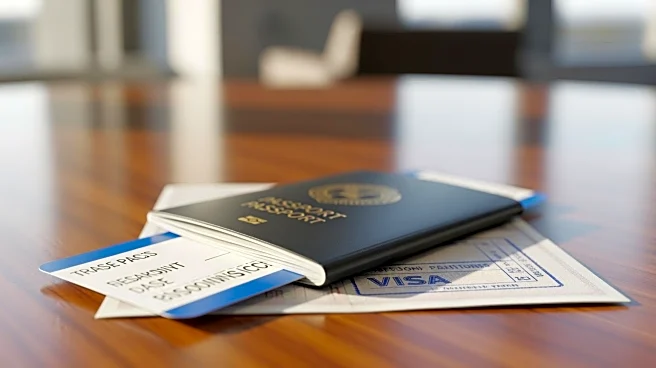What's Happening?
Naama Levy, a former IDF lookout and survivor of captivity in Gaza, delivered an emotional plea at a UN-organized event, urging the international community to take action to save 48 hostages still held in Gaza. Levy recounted her harrowing experience of being kidnapped on October 7, 2023, and the subsequent 477 days of captivity, which included severe malnutrition, untreated injuries, and periods of isolation. She described the terrifying conditions, including being forced to run under fire and the dread of Hamas tunnels. Levy emphasized the urgency of diplomatic efforts to free the remaining hostages, highlighting the suffering of families waiting for their loved ones.
Why It's Important?
Levy's appeal underscores the ongoing humanitarian crisis involving hostages in Gaza, drawing attention to the need for international intervention. The situation affects not only the hostages and their families but also has broader implications for regional stability and diplomatic relations. Successful negotiations could lead to the release of hostages, providing relief to affected families and potentially easing tensions in the region. The call for action highlights the role of diplomacy in resolving such crises and the importance of international cooperation in humanitarian efforts.
What's Next?
The international community may respond to Levy's plea by increasing diplomatic pressure on relevant parties to negotiate the release of hostages. Potential actions could include UN resolutions, increased dialogue between involved nations, and humanitarian aid initiatives. Stakeholders such as governments, NGOs, and human rights organizations might intensify efforts to address the crisis, aiming to secure the hostages' freedom and ensure their safe return.
Beyond the Headlines
Levy's testimony sheds light on the psychological and physical toll of prolonged captivity, raising awareness about the long-term impacts on survivors. The situation also prompts discussions on the ethical responsibilities of nations and organizations in addressing hostage crises and the need for comprehensive support systems for survivors post-release.









